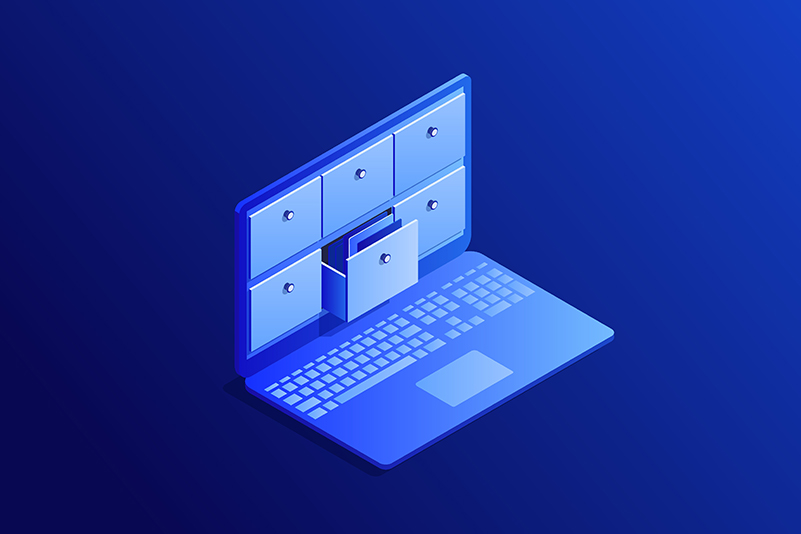A lot goes into the law profession beyond just attending court cases. It involves handling volumes of documents, scheduling meetings, and managing client expectations. Doing so manually not only wastes time and money, but it's also prone to errors.
That’s where case management software comes in. These powerful applications help automate the many moving parts in a law firm’s operation.
Are you considering streamlining your law firm's day-to-day tasks? Read on to find out more about case management software and how it can help you.
What is Legal Case Management Software?
Case management software is any suite of applications that helps lawyers and law firms manage the day-to-day minutiae of their cases. As you can imagine, most legal offices handle multiple cases, each with a potential mountain of documents, contacts, and timelines.
Good case management software automates a lot of these tasks for the law firm. Examples include managing legal documents, scheduling meetings and hearings, and tracking billable time of lawyers on the firm’s payroll.
Since case management software often deals with different aspects of a law firm’s operation, it can be bought as stand-alone module. This is useful for solo lawyers or smaller firms, where it can be economical to buy only the features that are needed.
Most case management software vendors, however, sell this software as a suite often bundled as a complete practice management solution. Such packages include all other aspects of running a legal business, including accounting and marketing functions. They are often the best approach for larger firms.
Key Features of Legal Case Management
The best litigation management software needs to have critical features for it to be useful to legal professionals.
- Centralized Database for Case Information
A fundamental functionality of case management software is to act as a centralized database for all the firm’s case information. These are often legal documents, but can also include contact information, correspondence, and transcripts. For larger firms, access management is crucial. Sensitive documents should be available only to the relevant team handling the case.
- Scheduling & Time Management
Scheduling is a vital feature. A good case management system keeps track of meetings, court hearings, and submission deadlines to the court. It can also help senior lawyers check if their lawyers’ time is being used efficiently and avoid overburdening staff.
- Tracking Billable Hours
In addition to scheduling, case management software helps track billable time for all staff on payroll. Some lawyers have alternative arrangements when it comes to time and billing. Legal case management software can accommodate various time-tracking needs, ensuring that everything is accurately accounted for.
- Case Research Integration
A good case management system also aids in researching cases. The better solutions integrate with legal research platforms and services to streamline the discovery process and make it more efficient for legal professionals.
These are just a few features. For a more comprehensive understanding, explore case management software reviews online to compare the best options for your firm’s needs.
The Advantages of Law Firm Case Management Software
Lawyers and law firms use case management software to navigate the hectic days in the legal profession, in addition to many other benefits. Here are a few:
- Helps save time
Time is one thing that lawyers can’t get enough of, and good legal case management software can help them recover a bit more of that. It can help reduce research time by organizing documents and contacts to make them more searchable.
- Automate document creation
Documents are one of the cornerstones of the legal profession, and it has plenty of them. They can run for hundreds of pages, often repeating facts across different documents.
Case management software can help automate the process of creating documents by instantly generating and filling out e-forms. This helps streamline the process while reducing grammatical and spelling errors.
- Meet all deadlines
Missing a deadline is detrimental for a lawyer, as he or she can be sued for malpractice. The most common reason for missing a deadline is disorganization by the lawyer himself or one of his support staff.
Case management software has scheduling features that can notify you of important dates, helping you avoid missed deadlines and threats to your practice.
The Future of Law Case Management Software
There is an increasing number of case management cloud solutions available. This is partly due to convenience and accessibility. For example, lawyers can access the firm’s database in the middle of a deposition, from home, another country, or wherever their case is being handled.
Not only has this technology increased the access and availability of legal documents, but also the lawyers themselves, making them more present and prepared for their legal clients.
Digital WarRoom
Of all the applications and features of case management software, its core should still be about managing legal documents for better and faster research. With our eDiscovery software system, you’ll gain that and then some. Contact us today to schedule a demo.
Frequently Asked Questions
- What are the benefits of legal case management software?
Legal case management software helps law firms improve efficiency by automating document creation, tracking billable hours, managing schedules, and storing sensitive case information securely.
- Can legal case management software integrate with other legal tools?
Yes, many case management systems offer integrations with popular legal research and document management platforms, making it easier for lawyers to access and manage case information.
- Is cloud-based case management software more secure than traditional systems?
Cloud-based systems often come with advanced security protocols, such as encryption and multi-factor authentication, to make sure that sensitive legal information remains protected.
- How does legal case management software help with time tracking?
Case management software tracks billable hours for each team member and provides detailed reports, ensuring accurate billing and compliance with client agreements.
- Can solo practitioners benefit from case management software?
Yes, solo lawyers can benefit from case management software by using standalone modules or smaller, more affordable packages that focus on essential features like document management and scheduling.
-1.png?width=400&height=164&name=DWRLogoClassic%20-%20Copy%20(2)-1.png)









Comment On This Article